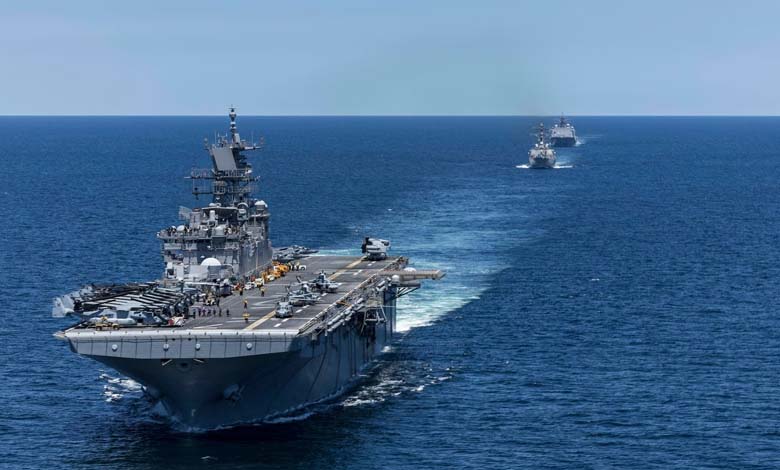Anti-smuggling operation or violation of sovereignty? U.S. airstrikes intensify across the Caribbean

U.S. Secretary of Defense Pete Hegseth announced that three people were killed in an airstrike targeting a boat suspected of drug trafficking, as part of a series of U.S. military operations that have drawn strong international and United Nations criticism.
The total death toll has now reached 65 in recent weeks, marking a sharp escalation in what Washington describes as its campaign against “drug trafficking networks” in the Caribbean region.
In a statement posted on the X platform, Hegseth said that “the strike targeted a vessel identified by U.S. intelligence as being involved in smuggling,” adding that “three suspected drug-terror traffickers on board were all killed.”
The secretary emphasized that the United States “will continue to pursue and eliminate suspected drug traffickers,” signaling ongoing operations in international waters.
-
Sovereignty dispute in Scarborough: a new diplomatic confrontation between the U.S. and China
-
The Dream of Airborne Rearmament: A New Goal for the U.S. Air Force
Since early September, Washington has launched a large-scale military campaign, deploying warships and F-35 fighter jets to Puerto Rico under the pretext of preventing drug smuggling into U.S. territory. Meanwhile, the frequency of airstrikes on what the Pentagon calls “suspicious smuggling targets” has increased.
According to official figures, U.S. forces have carried out more than 15 airstrikes across the Caribbean since the campaign began, killing at least 65 people, while reporting no American casualties.
Although the Pentagon describes the strikes as “preventive measures against terrorist drug networks,” several Latin American governments have condemned them as violations of sovereignty and breaches of international law.
-
New U.S. Plan to Fund the SDF Signals Rising Tensions with Turkey
-
Washington’s silence confuses allies: Is the U.S. pulling out of Europe?
United Nations High Commissioner for Human Rights Volker Türk sharply criticized Washington, calling for “an immediate halt” to what he described as “unlawful killings under international law.”
“These attacks and their growing human toll are unacceptable,” Türk said, warning that continued strikes “undermine international justice principles and set a dangerous precedent for the extrajudicial use of force.”
Human rights organizations have also argued that the United States has failed to provide solid evidence that those targeted posed a direct threat to its territory, suggesting that the strikes are being used to expand American military influence in the Caribbean under the guise of “counter-narcoterrorism.”
-
Trump and the Insurrection Act: Why Deploying the U.S. Military at Home Deepens Division
-
UK Reinforces Its Defenses with Nuclear Submarines: Largest Military Overhaul Since the 1990s
Venezuelan President Nicolás Maduro accused Washington of using the drug issue as “a pretext to impose regime change in Caracas and gain control of Venezuela’s oil resources.”
U.S. President Donald Trump, however, denied any intent to target Venezuela, stating that the operations “focus solely on criminal groups that threaten U.S. security.”
According to a memorandum sent by the Trump administration to Congress, Washington considers itself engaged in an “armed conflict” against drug trafficking groups in Latin America, labeling them as “terrorist organizations” to provide legal justification for its ongoing military campaign.
The rapid escalation of U.S. operations in the Caribbean, coupled with mounting international condemnation, has reignited debate over the legitimacy of American force projection beyond its borders and the transformation of the so-called “war on drugs” into a transnational conflict.












